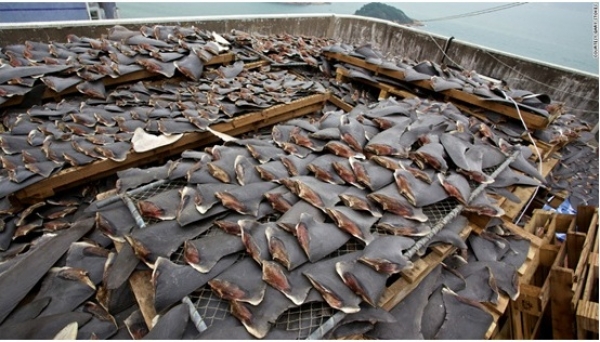The announcement comes after a flurry of public outcry warning of non-policedpillaging of protected dolphins, whale, shark and turtles by fifteen Chinese-owned fishing vessels working the south-coast of Timor-Leste.
In a statement released on Friday, the government said a “routine inspection” had “revealed the vessels were carrying an estimated 43 ton of shark, potentially contravening Timor-Leste’s law and the terms of the fishing license granted by the Minister of Agriculture and Fisheries.”
The inspection was carried out between the 9-12 February by the National Directoriate of Fisheries on all 15 vessels in the Port of Caravela, Baucau.
“The Minister of Agriculture and Fisheries has the exclusive competence under Timor-Leste’s law to take these further actions which may include fines and/or the suspension or revocation of a fishing license,” the statement said.
Agio Pereira, the Government Spokesperson and Minister of State, said: “The Government will follow the due process to ensure that the license holders are acting correctly and will do so in a manner that balances the rights of the license holders and their responsibilities to abide by the terms of their agreements and the laws of Timor-Leste.”
According to the statement, the fishing vessels’ had been issued one-year licenses by the Ministry of Agriculture and Fisheries, valid 15 November 2016 – 15 November 2017.
On February 17, JornalIndependente published Doubts Raised Over Timor-Leste’s Commitment to Marine Conservation, outlining concerns the vessels were operating untracked and unmonitored, “freely” catching protected species.
This included: “shark (over 840 tons – some listed as vulnerable on the IUCN Redlist), turtles (over 100 reports – all protected worldwide) and cetaceans (whales and dolphins - unknown number- all protected).”
In 2016 Timor-Leste became the first country in Asia to protect its entire shark species.
This milestone was hailed as a major achievement for the country, which has been listed as having some of the world’s richest marine waters in the world by Conservation International.
The landmark conservation move included the listing of 19 new species to the country's Marine Protected Species list – including all species of sharks, dugongs, sea turtles, whales, dolphins, both oceanic and reef manta rays. At the time was seen as a visionary step that showed “clearly that it understood that the decisions it made today would be felt by its children.”
The statement released Friday said the government placed“a high value on our marine resources, the sustainability of fish stock and the preservation of protected species.”
“The Government also recognises the importance of properly conducted fishing agreements as an important and positive aspect of our national development and economic diversification.”







